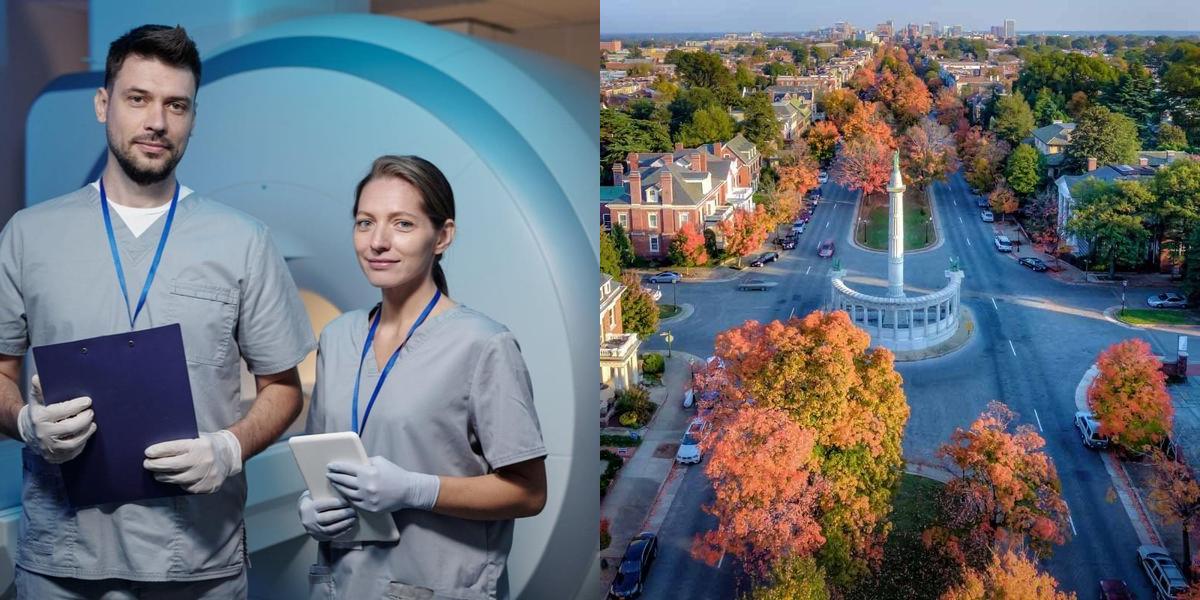How to Become a Radiology Technician in Virginia

What is a Radiology Technician?
Radiology technicians, also known as radiographers, are healthcare professionals who perform diagnostic imaging examinations, such as X-rays, computed tomography (CT) scans, and magnetic resonance imaging (MRI) scans. Their primary responsibilities include:
- Operating and maintaining medical imaging equipment
- Positioning patients and ensuring their comfort during the procedure
- Protecting patients and themselves from radiation exposure
- Analyzing the images and providing them to radiologists for interpretation
Article continues after recommendations
Recommended for you
Where Does a Radiology Technician Work?
Radiology technicians typically work in hospitals, outpatient clinics, diagnostic imaging centers, and physicians' offices. They may also be employed by government agencies, research facilities, and educational institutions.
How to Become a Radiology Technician in Virginia?
To become a Radiology Technician in Virginia, one must first complete an accredited radiologic technology program, typically an associate's degree. Next, they must pass the American Registry of Radiologic Technologists (ARRT) examination to obtain certification. Once certified, they can search for job opportunities in hospitals, clinics, or imaging centers, earning a competitive salary commensurate with their skills and experience.
What are the Requirements to Become a Radiology Technician in Virginia?
To become a radiology technician in Virginia, you must meet the following requirements:
- Education: Complete an accredited radiologic technology program, which typically takes 2-3 years and leads to an associate's degree or a certificate.
- Licensing: Obtain a license from the Virginia Board of Medicine, which requires passing the American Registry of Radiologic Technologists (ARRT) examination.
Exploring a Career in Radiology Technician Outside Virginia
If this article has sparked your interest in becoming a Radiology Technician, but you're not in the same state, don't let that hold you back. You have the chance to pursue a career as a Radiology Technician in places like Arkansas, Georgia, Nebraska, Rhode Island, or Wisconsin. And if none of these locations fit, Dreambound makes it easy for anyone, anywhere, to find and compare Radiology Technician classes just by search by zip code. With a bit of determination and the right tools at your disposal, stepping into a successful healthcare career is completely doable, no matter your current location.
How Do I Get My Radiology Technician Certification?
To get your radiology technician certification in Virginia, you must:
- Graduate from an accredited radiologic technology program.
- Pass the ARRT examination.
- Apply for a license from the Virginia Board of Medicine.
Get courses selected just for you
Try our powerful search engine
How Do I Get a Job as a Radiology Technician?
To get a job as a radiology technician in Virginia, you can:
- Search for job openings on job boards, hospital websites, and professional networking sites.
- Attend job fairs and networking events to connect with potential employers.
- Consider internships or entry-level positions to gain experience.
- Highlight your education, certification, and any relevant skills or experience in your resume and cover letter.
Career Paths and Opportunities after Becoming a Radiology Technician
As a radiology technician, you can explore various career paths and opportunities, such as:
- Specializing in a particular imaging modality (e.g., CT, MRI, mammography)
- Advancing to a supervisory or management role
- Becoming an educator or instructor in a radiologic technology program
- Pursuing further education to become a radiologist assistant or a radiation therapist
Final Thoughts
Becoming a radiology technician in Virginia can be a rewarding and fulfilling career path. By meeting the education and licensing requirements, you can join a growing field that plays a vital role in healthcare. With the right skills, knowledge, and dedication, you can find a fulfilling job and explore various career opportunities within the field of radiology.
Looking for a better fit? These other articles could be more in line with your expectations if this one isn't precisely what you had in mind:

Athena is Co-founder and CEO of Dreambound.




